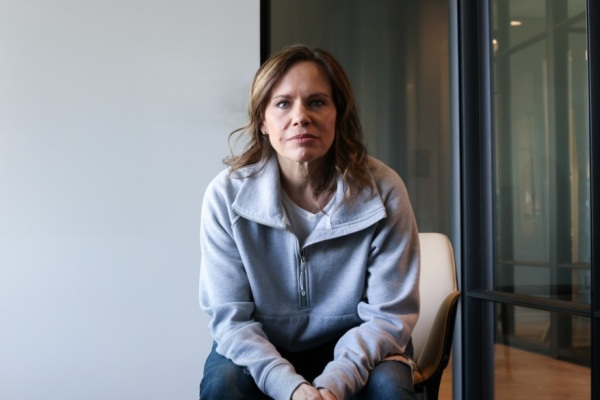Russell Moore shares powerful advice for children of divorced parents: 'You're right to hurt'

Russell Moore, president of the Southern Baptist Convention's Ethics & Religious Liberty Commission, has shared advice for children whose parents are divorcing and offered a comforting reminder that “Jesus is alive and taking us to a world where there are no divorce courts.”
In a video posted to his YouTube channel on Tuesday, Moore acknowledged, regardless of age, parental divorce is difficult for children.
“You’re right to be upset,” he said. “It’s OK to hurt in this because this is not the way it’s supposed to be. God created that marriage union to be lifelong and God created that lifelong union of parents to be a picture of security and a reality of security. So when that’s being ripped apart, something violent is happening to that picture of the Gospel. You’re right to hurt.”
While it’s tempting to want to “hide that hurt behind a self-protecting cynicism,” Moore encouraged those struggling to “genuinely grieve and lament.”
“What you will find is that God is tenderly present with you in that season of lament,” he said.
The second thing to remember is, “it’s not your fault,” he continued.
“I have walked with people through literally thousands of these situations. I have never, ever, seen or heard of a divorce situation where any of the children had anything to do with it,” the speaker and author said.
“You need to constantly remind yourself you have no power over this. You had no power to cause the divorce ... you have no power to keep your parents’ marriage together,” he declared. “No matter what your motives would have been, you would not have been able to do this. Nobody stays together in a marriage because they have good kids; no one divorces because they have bad kids.”
Moore also encouraged children not to take sides in a divorce, adding: “Sometimes, you’re going to have one parent who is going to want to vent to you. Don’t judge that parent. That parent really is grieving and lamenting and wants to talk to ... but there comes a point where you can say to that parent, ‘I think maybe somebody else would be better to help you work through this than I would be because I’m walking through this myself.’”
In such situations, it’s important to put sin into context, Moore added, “There is a way that seems right to people and they follow it. Let’s understand that there are often many things going on that we just don’t have access to and we just don’t see.”
Still, he cautioned against “feeling guilty about loving the other parent.”
“If you’re somebody who tends to be closer to one parent or the other or you’re living with one parent as opposed to the other, or maybe you have no other choice but to internally take the side of one in terms of just the facts, that’s OK. But don’t choose sides between the two. Be sensitive,” he stressed.
Finally, Moore encouraged children of divorced parents to remember: “This is not your destiny.”
“People used to talk a lot about kids who come from a broken home and the fact that they tend to repeat the broken mistakes of their past,” he said. “We all come from broken homes ... every family is heaving under the fall. So we’re all experiencing brokenness in some way or another.”
While some children do mimic their parents’ behaviors in their own relationships, “that’s not always or even usually the case,” Moore said, adding that such individuals are often “inordinately afraid of repeating those mistakes.”
“The people that I’ve seen who have watched their parents' divorce ... are the ones who are often the best husbands and wives and mothers and fathers later on,” he said.
“There is no marriage utopia; there are always going to be difficulties, and we can work through it,” Moore concluded. “It hurts. Parents divorcing, that hurts. You’re right to hurt. But Jesus is alive and He’s taking us to a world where there are no graveyards and there are no divorce courts.”
A 2008 study from the Barna Research Group found that among American adults who have been married, one-third (33%) have experienced at least one divorce. Born again Christians who are not evangelical, the study found, were “indistinguishable” from the national average on the matter of divorce: 33% have been married and divorced. In contrast, 26% of evangelicals were found to have experienced divorce.
In recent years, a number of Christian leaders have called on the church to offer more in-depth forms of marriage preparation and to maintain environments where healthy marriages can be built to last.
Richard Hoffman, clinical director at Christian Counseling Associates in Greensburg, Pennsylvania, told The Christian Post that the “average church” loses a “significant portion of families every year to divorce.”
"The Christian community has been devastated by our inability to see marriage as part of the path of discipleship, and the commitment that you make as a Christian regardless of how you feel or circumstances that happen. And we've had a very difficult time providing resources for helping people live into that and make that a priority,” he said.
He reiterated that if Christians are serious about preventing divorce, they must "acknowledge that marriage is a reflection of our relationship to the Lord and that makes reconciliation in marriage a priority we would seek after with all of our life when we're in conflict in marriage.
"Because when we find ourselves in conflict with the Lord, our greatest hope is that in the end He will offer mercy and reconciliation through Jesus Christ. And we need to reflect that in our relationships first with the people who we're married to, our spouses, and then, through that, we learn how to offer that kind of mercy to others who are seeking, ultimately, reconciliation with Jesus Christ."





















